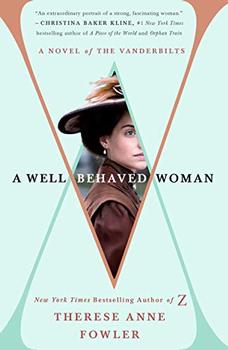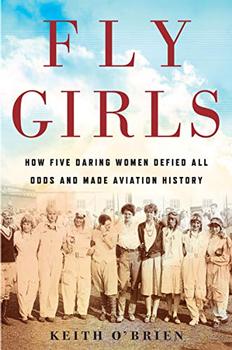Summary | Excerpt | Reading Guide | Reviews | Beyond the book | Read-Alikes | Genres & Themes | Author Bio

Sarah Bird's historical novel, Daughter of a Daughter of a Queen, imagines, with a grand flourish, the life of Cathy Williams (1844-1893.) In plain, often crisp, vernacular Bird reminds us that Cathy Williams broke barriers. She didn't suffer fools. She fought men and avoided rape by being cunning. She fell in love and embraced sorrow. She hid her femininity. Williams' place in history is firmly established: disguised as a man, she was the first known African-American woman to enlist as a U.S. Army soldier and the only one documented to have served in the U.S. Army in the 19th century.
But Bird draws a much wider arc in her novel, and presents Cathy Williams as an exceptional woman from the beginning. Not long after Williams kills her master Old Mister because he was raping her sister Clemmie, Union general Phillip Sheridan descends upon the tobacco farm and takes Williams, dropping her into the lap of military life; suddenly she is in concert with men charged with killing off the Confederates. She takes it in stride: "'It surprised me that Yanks woke up making the same disgusting noises and doing the same disgusting things as every other man I had ever known,' she said after a few days at the Union camp."
Cathy begins working for the army cook, a former slave named Solomon. He isn't happy about a girl in his kitchen, and she isn't happy being there. Fighting, not boiling corned beef or chopping cabbage, is Cathy's destiny. She needs to settle the score of slavery. A hell-raiser by birthright (her grandmother was an Amazon warrior), she welcomes physical confrontation as an extension of affection.
Once the war is over there is a reclaiming of humanity. Cathy is changed. After emancipation, being Black in the world just feels different, particularly after she witnesses a parade of Black soldiers in their dress blues and rifles, real soldiers, not contrabands digging graves and chopping wood. It shakes her to the core. Former slaves so spectacularly regal and proud, Black men serenaded with the Battle Cry of Freedom. When their sergeant speaks to the crowd, Williams is spellbound:
"Uncle Sam stood up and fought a mighty war so we might be free. Now I say to you all tonight, my brothers in freedom, stand up with your Uncle Sam and help him win the fight to make the West a land of peace and prosperity."
Overcome and inspired, Cathy is desperate to be a soldier. But she will have to lie to the army; she has to separate her womanhood from her Blackness; she has to be opaque. First, she gags a man who had stolen her rifle before the war ended. She breaks his hand. She forces him to take his boots off and then shoots off his big toe. Wearing his clothes, she cuts her braids and wears a cap. She then enlists as a male soldier. Cathy Williams is now William Cathay.
But the proposition of a woman hiding her femininity among men is filled with complexities, which Bird thoroughly explores. She has to bind her breasts to her bones. She has to hold her urine for hours despite the pain until she can discreetly find a place to relieve herself. Her voice is naturally deep and she is an expert shot with a rifle, but she is a woman pretending to be a man in every context that screams masculinity. Card games. Dirty jokes. Objectifying women. She navigates the male terrain quite carefully. Living a lie takes patience and stubbornness. The fear of discovery leaves a sour taste in her mouth.
Bird draws Cathy as contradictory, and this is an important character nuance. One moment she is frail and troubled and unsure, living a false identity. The following morning she is confident and tough and determined, a dramatic heroine. What is intensely human about her story is what is intensely triumphant about the courageous. It is not an absence of fear that separates them from the ordinary, but it is the fact that their fear does not stop them. Cathy's fictionalized story makes you cheer her bravado and guts, melt at her tenderness, and embrace her sisterhood. Her double life is its own message about challenging standards, the capacity of women to do men's work, and the importance of intimacy. She accepts loneliness and isolation on behalf of equality and justice. She accepts a broken heart.
If her life – and Bird's novel – have any lingering message it is that women push their way into exceptionalism by their own guile and guts and desire. They dismiss boundaries and barriers and people telling them you can't. Women who lead are magical.
![]() This review was originally published in The BookBrowse Review in October 2018, and has been updated for the
February 2020 edition.
Click here to go to this issue.
This review was originally published in The BookBrowse Review in October 2018, and has been updated for the
February 2020 edition.
Click here to go to this issue.

If you liked Daughter of a Daughter of a Queen, try these:

by Therese Anne Fowler
Published 2019
The riveting novel of iron-willed Alva Vanderbilt and her illustrious family as they rule Gilded-Age New York, from the New York Times bestselling author of Z: A Novel of Zelda Fitzgerald.

by Keith O'Brien
Published 2019
The untold story of five women who fought to compete against men in the high-stakes national air races of the 1920s and 1930s — and won.
Your guide toexceptional books
BookBrowse seeks out and recommends the best in contemporary fiction and nonfiction—books that not only engage and entertain but also deepen our understanding of ourselves and the world around us.